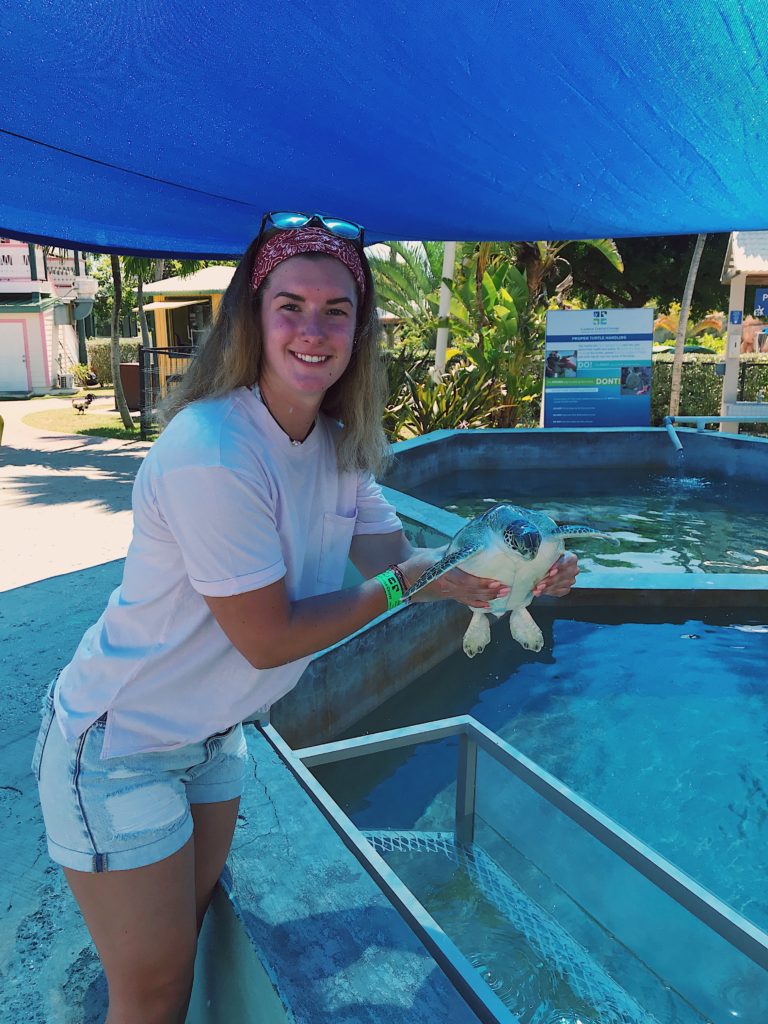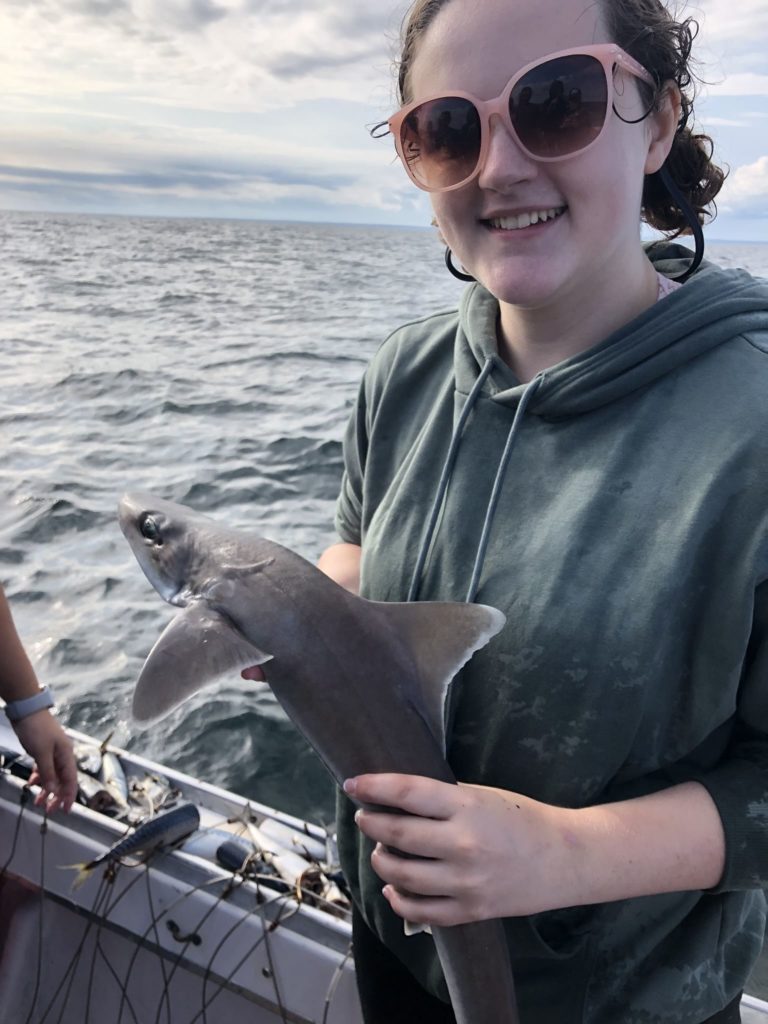The OSIMAP team welcome two URI Coastal and Environmental Fellows to our program from the Summer 2020 cohort. Cara Megill and Jacqui Roush, who provide a little insight into why they are interested in microplastic research below. The Coastal and Environmental Fellowship program provides URI undergraduate students with opportunities to participate in ongoing environmental research, education, or public outreach programs and fits our training aims for the OSIMAP program.
Cara Megill

Currently, I am a going into my senior year studying Marine Biology and Chemistry. Coming into college as a marine biology major, I never thought I would receive the education and experiences this university has provided me with. The experiences I have had over the past year have helped improve my understanding of the marine environment, which compelled me to add a second major in chemistry. In the future, I am interested in pursuing a research career that will combine these two subjects. Specifically, focusing on the effects of marine pollution on reef building organisms such as corals or the effects of ocean acidification on coral reefs. I find the interactions and reactions of organisms to their environment to be fascinating.
I became interested in marine plastic pollution last year while interning for the Mystic Aquarium’s Education and Conservation department. During my internship there, I learned a lot about different factors impacting the marine environment and how we are able to help. Marine plastic pollution, the subject I found most compelling, was a topic that I had some interest in previously (by wanting to be more environmentally friendly) but never took a direct approach at learning more or changing my habits. My time at the aquarium not only taught me how to decrease my plastic usage, but it taught me the true impact plastic has on our environment.
Wanting to further my education on this topic, I took Dr. Coleen Suckling’s class “Marine Plastic Pollution” this past spring. In her class, we got to participate in a beach clean-up/survey as well as microplastic collection, extraction and identification. Not only did we learn these techniques, we were taught about all aspects surrounding plastics from production to policy to recycling. Learning these techniques and topics, solidified my interest in marine plastic pollution as a research career.
In the future, I hope to attend graduate school, and eventually participate in research surrounding marine pollution.
Jacqui Roush

This summer, as a part of the 2020 Coastal and Environmental Fellows program at the University of Rhode Island, I am assisting on the Ocean State Initiative for Marine Plastics.
This research will be very beneficial for the science community, It will allow anyone interested to gain a better understanding of environmental levels of microplastics in the New England area and the effect these microplastics might have on the
environmental ecology. This project is also exciting to me because microplastics present a sort of puzzle.
One half of the puzzle is identifying the sources of aquatic microplastics, be it from
commercial sources or something as simple as a plastic bag breaking down. The other half of the puzzle is, once we identify the microplastics and the effects they have on the environment, how do we get rid of them? Which is a fun intellectual exercise for me as an engineer.
I’m a rising sophomore at the University of Rhode Island, double-majoring in ocean engineering and marine biology and I have been interested in the study of the ocean from an early age. In the future, I aspire to help make ocean research instrumentation more accessible and pursue deep sea ecological research.
